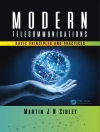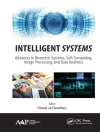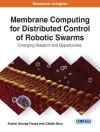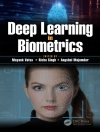The book gives a comprehensive overview of the state-of-the-art research and engineering in theory and application of Lattice Automata in design and control of autonomous Robots. Automata and robots share the same notional meaning. Automata (originated from the latinization of the Greek word “αυτόματον”) as self-operating autonomous machines invented from ancient years can be easily considered the first steps of robotic-like efforts. Automata are mathematical models of Robots and also they are integral parts of robotic control systems. A Lattice Automaton is a regular array or a collective of finite state machines, or automata. The Automata update their states by the same rules depending on states of their immediate neighbours.
In the context of this book, Lattice Automata are used in developing modular reconfigurable robotic systems, path planning and map exploration for robots, as robot controllers, synchronisation of robot collectives, robot vision, parallel robotic actuators. All chapters are written in an accessible manner and lavishly illustrated. The book will help computer and robotic scientists and engineers to understand mechanisms of decentralised functioning of robotic collectives and to design future and emergent reconfigurable, parallel and distributed robotic systems.
Inhoudsopgave
Algorithmic Insights into Finite-State Robots.- Lattice Automata for Control of Self-Reconfigurable Robots.- Modular Reconfigurable Robotic Systems: Lattice Automata.- Lattice-based Modular Self-reconfigurable Systems.- Speed control on a hexapodal robot driven by a CNN-CPG structure.- Routing by Cellular Automata Agents in the Triangular Lattice.- Multi-Resolution Hierarchical Motion Planner for Multi-Robot Systems on Spatiotemporal Cellular Automata.- Autonomous Robot Path Planning techniques using Cellular Automata.- Cellular Robotic Ants Synergy Coordination for Path Planning.- Employing Cellular Automata for Shaping Accurate Morphology Maps Using Scattered Data From Robotics’ Missions.- On the use of Cellular Automata in Vision-based Robot Exploration.- Modelling Synchronisation in Multirobot Systems with Cellular Automata: Analysis of Update Methods and Topology Perturbations.- Cellular Automaton Manipulator Array.












